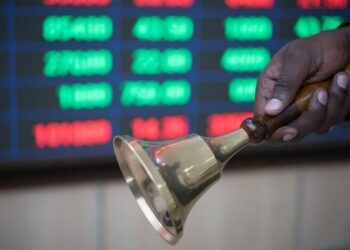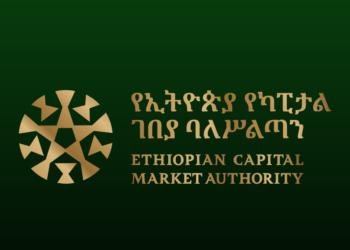The anticipation was palpable as Skylight Hotel buzzed with activity in preparation for one of the most significant events in Ethiopia’s financial history—the Capital Market Summit 2024 (#CMS2024). Experts, government officials, university representatives, and event organizers alike were running around, ensuring that the summit would be an unforgettable experience. Everywhere you looked, the phrase “capital market” echoed in conversations, from the faces of eager undergraduate students to the seasoned experts in the field. The summit brought together a diverse audience with one common goal: to explore the future of capital markets in Ethiopia.
As participants moved through the halls, there was a mix of curiosity in the air. For some, the question was simple: When will the market begin and how can they get involved? For others, the question was far more profound: What does the capital market mean for me and for Ethiopia as a whole?
Organized by the Ethiopian Capital Market Authority (ECMA) in collaboration with the International Finance Corporation (IFC) and the African Development Bank (AfDB), the summit’s theme, “Paving the Way for a Sustainable Future,” aimed to address key issues shaping the capital market ecosystem. These included IPO readiness, debt and equity markets, funding opportunities for startups and SMEs, and the rise of green and sustainable financial products.
One of the most pressing discussions centered on corporate governance, regulatory frameworks, and the need for investor education and mobilization. Governor Mamo Mihretu, the man behind many of Ethiopia’s monetary policy shifts, delivered a keynote address that was both forward-looking and reflective of the challenges the country faces as it builds its capital market infrastructure.
A Historic Turning Point in Ethiopia’s Financial Landscape
In his speech, Governor Mamo highlighted Ethiopia’s significant strides in capital market development, acknowledging the country’s position as a latecomer to global trends. However, he emphasized that the upcoming launch of the Ethiopian Securities Exchange (ESX) marked a pivotal moment in Ethiopia’s financial history. “We are on the cusp of launching a full-fledged stock market in the form of the Ethiopian Securities Exchange,” Mamo declared, stressing that this would be a landmark achievement for Ethiopia’s economic transformation.
The National Bank of Ethiopia (NBE) played a crucial role in preparing the country’s financial landscape, developing the Capital Market Proclamation, and establishing the Ethiopian Capital Market Authority (ECMA). Governor Mamo underscored the vital role of capital markets in driving long-term financing for businesses, providing diverse savings options for individuals, and becoming a dependable source of domestic funding for the government.
Despite the optimism, he also pointed out the challenges ahead, particularly in building a transparent regulatory environment and developing a skilled workforce to support the market’s growth. “We need to be vigilant about establishing clear, consistent policies and enforcing them effectively,” he noted, adding that access to capital markets must be inclusive, ensuring all Ethiopians, including ordinary savers and small business owners, can participate. Governor Mamo’s speech concluded on an optimistic note, emphasizing that the launch of the capital markets, especially with initiatives like the Ethio Telecom IPO, would lay the foundation for Ethiopia’s future economic growth.
Insights from the Panel Discussions
The summit’s agenda included several dynamic panel discussions, featuring expertise from both government and the private sector. One of the first panel discussions, titled “Progress to Date, Challenges, and Opportunities,” featured Hana Tehelku, Director General of ECMA; Dr. Brook Taye, CEO of Ethiopian Investment Holding (EIH); and Dr. Tilahun Kassahun, CEO of Ethiopian Securities Exchange.
Hana Tehelku offered a comprehensive overview of the regulatory developments driving the country’s capital market. She emphasized the importance of the rule of law and robust technological infrastructure in building a strong financial ecosystem. “These are among our top priorities,” Hana explained. She discussed the vital roles of ECMA and the Ethiopian Securities Exchange in promoting transparency, fairness, and market development, outlining several key directives issued by ECMA, such as the Service Providers Directive, the Fee Directive, and the Licensing of Exchange Directive.
In addition to the regulatory updates, Hana highlighted the technological advancements made in the capital market, including the development of a trading system, Central Securities Depository (CSD), and market surveillance tools. She also mentioned of Sharia-compliant products, catering to diverse investor needs. With the Ethio Telecom IPO in sight, she pointed out the crucial role of retail investors in shaping the future of Ethiopia’s capital market.
Dr. Tilahun Kassahun added to the conversation by discussing Ethiopia’s learning curve as a new market. Drawing lessons from Kenya’s successful debt market, he acknowledged the challenges of developing a thriving capital market but expressed optimism. “We are on track to build a robust and efficient debt market, especially in the over-the-counter segment,” he noted, highlighting the importance of supporting diverse sectors, such as startups and family businesses, to promote economic growth.
Dr. Brook Taye, CEO of EIH, shared insights into the progress of his organization, particularly in facilitating the listing of additional companies on the Ethiopian Securities Exchange. He spoke confidently about the future, noting that EIH, with the support of the World Bank, was actively working to list five companies. “We expect even more companies from EIH to join the market in the coming years,” he said, underscoring the positive financial impact these companies have on the national economy.
Expanding Investor Education and New Regulatory Frameworks
In the afternoon, the summit turned its attention to investor education, with Michael Habte, COO of the Ethiopian Securities Exchange, presenting initiatives to bridge the talent gap. He revealed plans to launch an academy offering both in-person and digital learning platforms. He also emphasized the importance of seminars and panel discussions in raising awareness and empowering investors.
On the second day of the summit, a major announcement was made by Hana Tehelku regarding the registration of two pivotal directives: the Public Offering and Trading of Securities and the Recognition of Self-Regulatory Organizations (SROs). These directives are crucial for strengthening Ethiopia’s capital market framework by promoting transparency, market integrity, and reducing systemic risks.
Directive No. 1030/2024, which governs public offerings and securities trading, aims to protect investors, ensure market transparency, and foster the development of Ethiopia’s capital markets. The directive also establishes clear rules for the registration of securities and provides a framework for governance, disclosure, and penalties for violations.
The directive on the recognition of Self-Regulatory Organizations (SROs) establishes the process for recognizing, regulating, and operating SROs within Ethiopia’s capital market. These organizations, which include exchanges, clearing companies, and industry associations, will play an essential role in ensuring market integrity under ECMA’s oversight.
A Bright Future for Ethiopia’s Capital Markets
As the summit drew to a close, discussions turned to the opportunities available for startups and SMEs in Ethiopia’s emerging capital market. The panel highlighted the fact that now is an ideal time for startups, with greater access to funding and capital markets offering growth opportunities. Despite challenges such as taxes and bureaucracy, panelists stressed the importance of patience and resilience as startups mature and contribute to the economy.
A key takeaway from the summit was the critical importance of a stable, sustainable policy environment to attract long-term investment. Participants noted that Ethiopia could benefit from learning from its regional neighbors, particularly Kenya, which has built a more robust startup ecosystem and investment climate.
With strong regulatory frameworks, investor education initiatives, and innovative financial products on the horizon, Ethiopia is poised for a new era in its economic development.





















